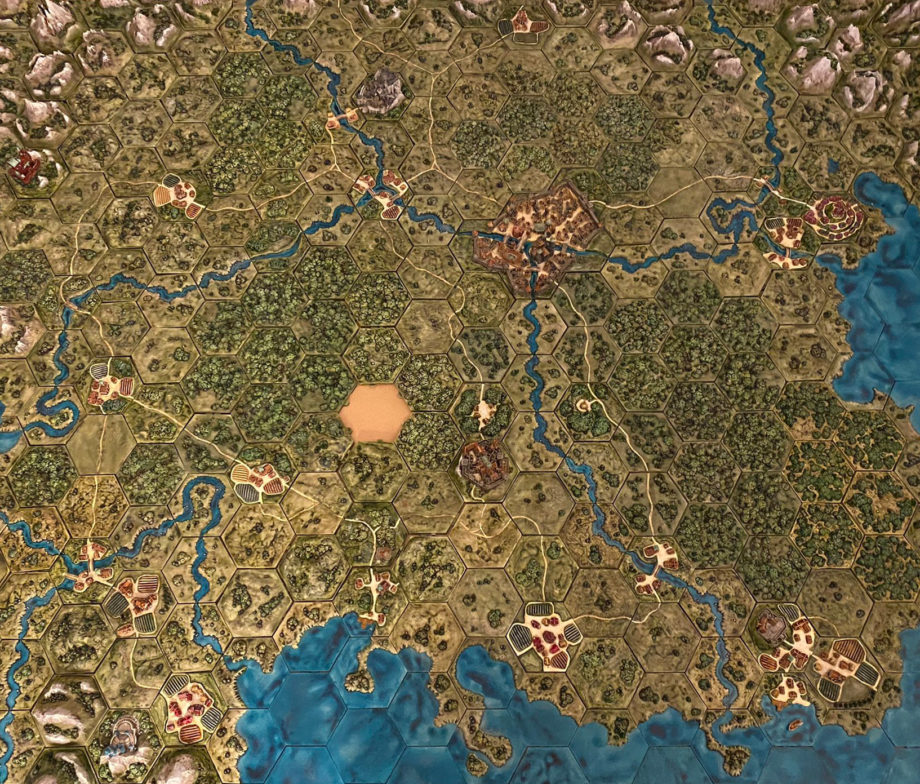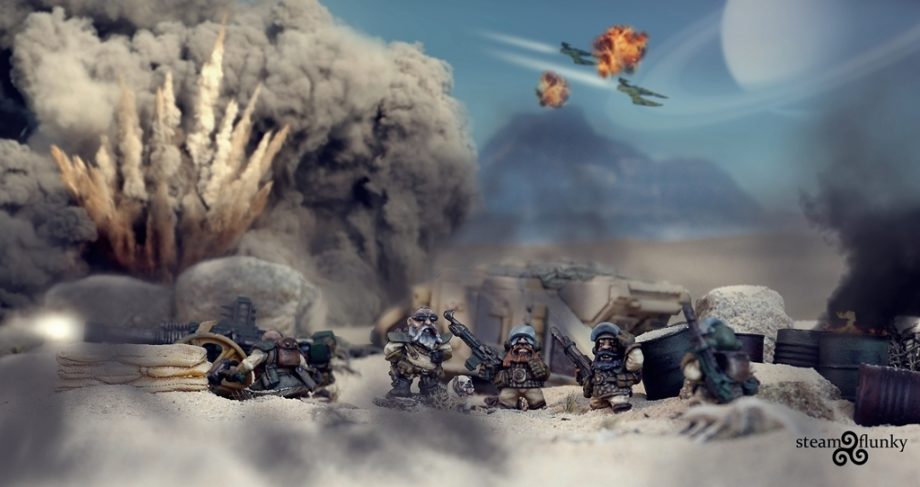Tabletop Conflict Influences
This is about a journey.
Alas there were no dragons - they were too expensive. But there were some space dwarves, until they were annihilated. At least there were plenty of influences along the way, all of which made Tabletop Conflict possible...
Warhammer & Mighty Empires
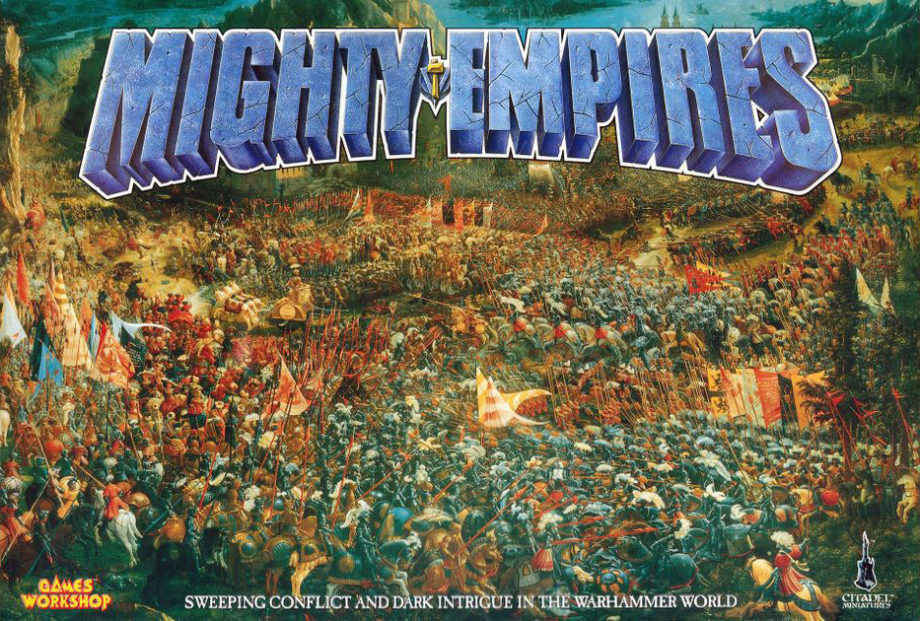
Like many gamers, I originally started in tabletop wargaming with Warhammer Fantasy Battle (3rd Edition) and Warhammer 40k Rogue Trader - although back then it was more "bedroom floor" than "tabletop". Very few of our battles had a backstory or scenario, we were lucky if we remembered who won the previous game and the concept of playing a campaign was never considered, until one of our group purchased Mighty Empires - an epic way to scale up our conflicts and link our games together.
Except, that didn't quite work out as well as hoped...
Mighty Empires was a game in itself, we had to move our armies across a variable landscape, scouting and discovering areas as we went, finding settlements, building fortresses and growing our armies from the tiles we discovered. There laid a double edged sword, in that we had to also sustain those armies and if we couldn't, they started abandoning us! Lots of dice rolling and randomness involved even before we got to any strategy or to battling our opponent(s) and because of this, the game would easily sway to one side even without any actual battles impacting on our forces; and that's not even factoring in loses from fighting NPC settlements or the randomness of them turning against us!
Storing the Mighty Empires board safely between games proved near impossible, especially as it was precariously balanced on top of a wardrobe, so after 2 or 3 attempts at actually pairing it with playing out the battles on the tabletop, we ended up just playing it as a stand-alone game! Which was OK, but lacking - the main pull was for the tabletop battles that we enjoyed, but alas the two couldn't be connected and didn't work together well.
@ Copyright Adam Clark
With 3D printing, it's more and more viable to build the likes of Mighty Empires maps in far more depth than the original cardboard tiles! But it still doesn't remove the fact that you have to have a separate gaming table set aside just to track your campaign progress.
Similar to the Mighty Empires system, when creating your campaign on Tabletop Conflict, the platform allows you to place different predefined resource types on your map, such as a towns, mines, castles or towers, these can then be given specific values that can generate particular resources for players if owned - this could be army points and/or campaign points, or just be used for decoration! You can implement your own rules for map locations such as castles and towers that can be used to reflect specific stratagems in your tabletop battles - whether its for defence or siege bonuses, or simply to represent ruins of an ancient fortification to fight around. Future updates will allow for the ability to raze tiles, destroying any structures it contains, and the ability to build new resource structures and fortifications mid game, but only if you want your players to have the freedom to do so. Unlike Mighty Empires, your campaign map is permanent so no need to pack it away at the end of a session as you are able to visit the campaign page at any time, and it certainly isn't going to get destroyed at a crucial moment when your daemon cat decides the best route across the kitchen is via the dining table and straight through the middle of the game board!
Tabletop Conflict doesn't force you down any specific playstyle or push you towards any particular ruleset, you're able to turn on or off any of the options available and are free to make your campaign as easy or as complex as needed. Importantly, Tabletop Conflict does all the tracking for you, which means no more micro managing your campaign, giving you the freedom to just enjoy it.
Rogue Trader
As much as I loved the strategy of Fantasy Battle, it was 40k that gave me the best memories. There were regularly 4 of us who would play a massive all out skirmish: Orks vs Eldar vs Marines vs my Squats. Of all the factions I could have chosen, I chose the vertically challenged Imperial Guard that Games Workshop made extinct. Maybe if I hadn't taken so many lascannons...
Copyright Steam Flunky
I only discovered Games Workshops' Planetary Empires once I'd started developing Tabletop Conflict, but it seems to have come into existence only as an afterthought - just adding a futuristic tile set rather than anything "planetary" to the game itself! Although you could paint up different tile sets and use them to represent the surfaces of different planets in a system, moons etc as the rules leaflet describes for adding new players - then allowing free travel to all planets via spaceports, but it just seems to lack something...?
One other key difference from the fantasy version is that the rules aren't quite rules - they're just loose guidelines on how to use the tiles as building blocks to shape and visualise your campaign. Possibly an acceptance that it shouldn't be two games thrown together, but instead an extension to support and extend the main tabletop game?
Building a planetary campaign map with Tabletop Conflict allows you to create specific travel routes and linking paths thus allowing you to connect multiple planets together each with their own contained areas to move across and battle over. Tabletop Conflict can also change maps mid way through a campaign based on set trigger event or turn count, so for example a twin-tailed comet may appear in your fantasy campaign heralding a great or tumultuous event or a warp rift may appear in your segmentum obscurus setting brining with it a tide of chaos or the great devourer, it could just change the landscape or add additional resource points across the map.
We are also currently working on expanding the use of maps during a single campaign which will allow users to navigate and traverse between multiple different ones so that you can view and fight across a planet surface, then once it has been conquered move on to the next planet in the system and another map to continue the battle.
Digital Distractions
For a large chunk of time, strategy computer games took over my hobbying thirst, but these always anchored back to big maps to play across and armies to battle with, such as Command & Conquer, Age of Empires, Starcraft, Homeworld and my fringe favourite Total Annihilation!
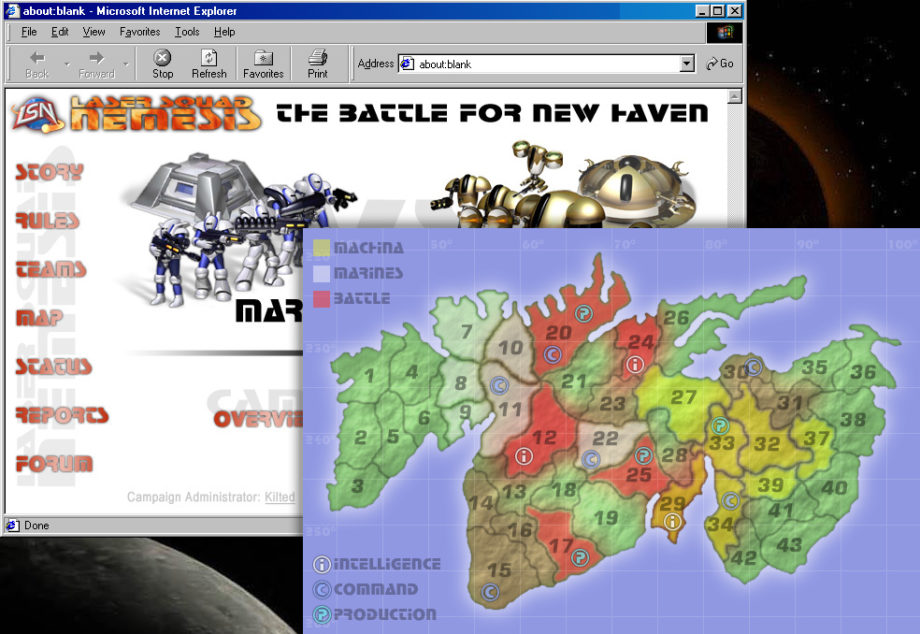
Back in the early noughties, Laser Squad Nemesis was launched from the creators of Xcom and the original Laser Squad computer games. I was fortunate to be involved with the beta along with a great community. Players soon began competition games and leagues, but there was a huge gap in being able to link games together, work in teams and create a much bigger story. So I took the opportunity and created a campaign website with an interactive (Flash) map that allowed players to link and visualise their individual computer games and their results into a larger campaign with multiple players.
Although Tabletop Conflict is focused on Tabletop Wargaming, the platform can still be used to visualise any types of game to link them together and create a bigger world to play in, be that a card game like Magic: The Gathering, or PC FPS games where each gaming session might be to fight over territory in a war-torn cityscape.
Although the distraction of digital games lasted a while, the fun of playing around a tabletop and endlessly collecting unpainted miniatures would soon call me back!
Getting back into Wargaming
After the death of Warhammer Fantasy Battle, I got back into tabletop gaming, under the guise of introducing my own kids to the fun I enjoyed with tabletop gaming. Secretly though, I was craving the model making and creativity, but still hadn't found a regular group to play games with. This lead me to collecting and experiencing other gaming systems, and exploring the wider range of game types out there. Kicking off with Guild Ball (pun intended) and then moving into larger scale battlefield games with the likes of Kings of War. Some of these games touched on campaign gaming, but most just pushed it to a couple of pages at the end of the rule book, never with any real effort or depth and certainly none with any digital support.
Only in the last few years have the likes of Games Workshop released tracker apps like Varanscribe for linking your games together, or Conquest creating a sort of Living World to make players feel like they are part of a bigger story. But these didn't touch on the depth that I knew was possible; immersing players and reflecting the impact their actions or battles could have to shape their favourite gaming world and lore. They all lack the interactive ability of bringing their gamers battles alive and the ability for their gamers to share them with a much wider community audience.
One of the important elements of Tabletop Conflict is the ability for players to thread a story together for their campaign, making it a journey they can revisit and share with anyone, and look back upon their greatest victories and woeful losses.
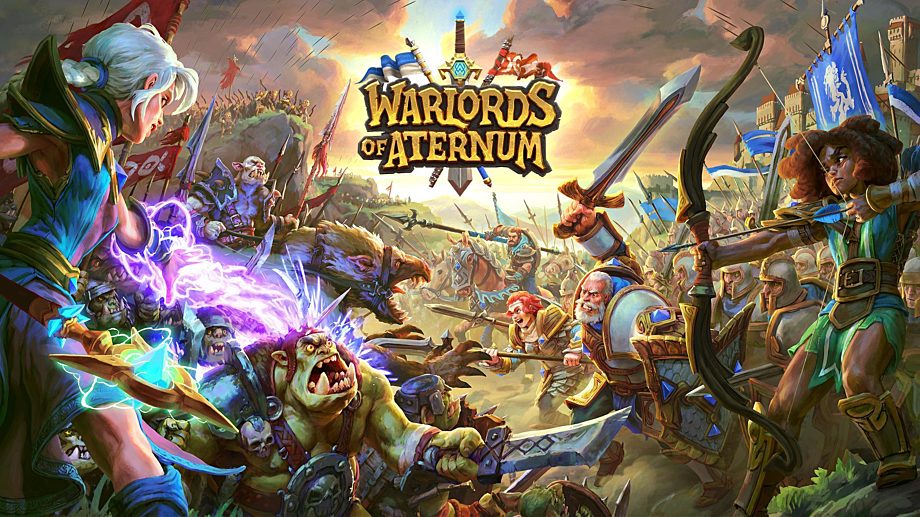
© Copyright InnoGames 2009 – 2021. All rights reserved
One final mention is a mobile game that has accompanied me throughout the initial development on Tabletop Conflict: Warlords of Aternum. This has been a great inspiration to me as it encapsulates an unfolding storyline of different factions and characters across a world map that is revealed to players as they expand and progress. Albeit without the depth and scope of armies on a tabletop, it has strategic mini-battles that are resolved to claim individual world map tiles as you progress throughout their fantasy world.
The rich scenic imagery for loading screens was great influence on the visualisation of the first story driven campaign we created: Lambs to the Slaughter. Which will be one of the first fantasy story campaign we have available.
What's your favourite memories or attempts at running campaign games? What tabletop or digital games inspire you to play campaigns and want to thread your games together to create a bigger picture and journey?
